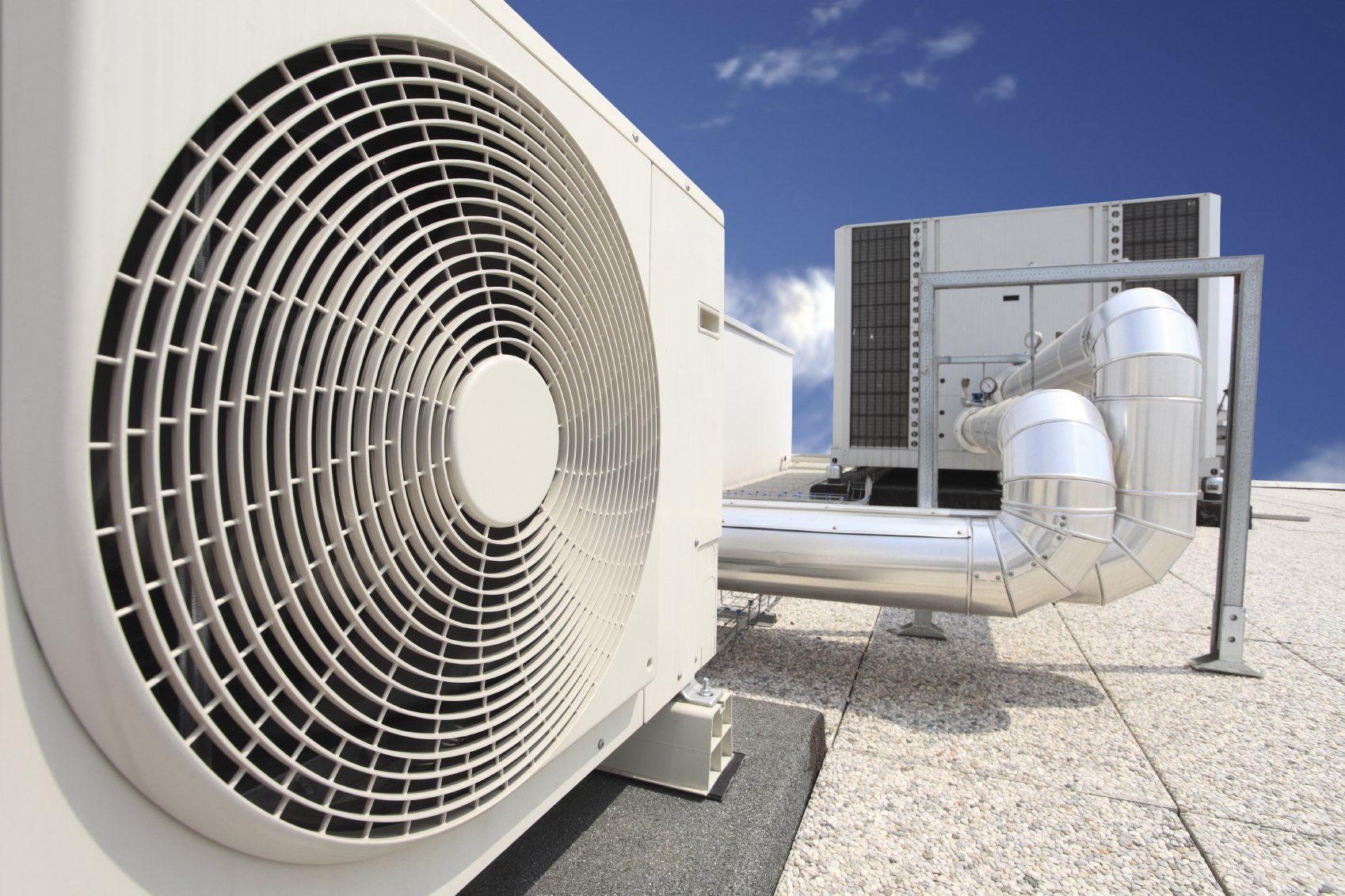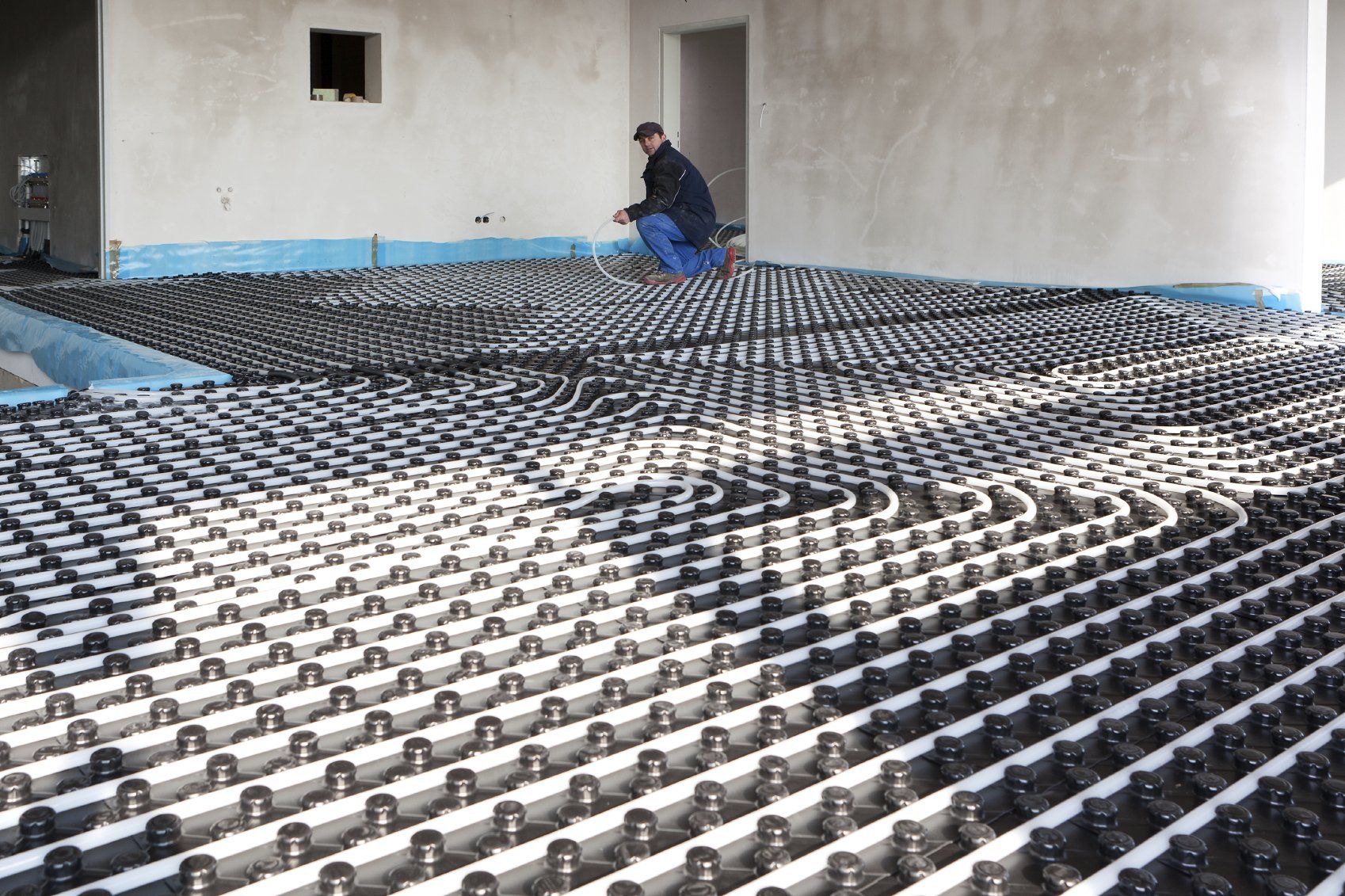Technologies

Air Source Heat Pumps
Air Source Heat Pump's provide heating and hot water to your commercial or domestic premises. Air Source Heat Pumps have a lower carbon footprint as they are powered by electricity so, you no longer need to worry about using harmful gases and fuels to provide essential heating and hot water to your property.
How does it work?
The outdoor unit will take the heat from the outside air and turn this into heating and hot water for your property. No matter what the temperature is outside your property will be nice and toasty, provided the system you have installed suits the property!
How do I know what Air Source Heat Pump I need?
By having a heat loss survey carried out by one of our experienced surveyors, we can determine the heating demand for the property in question. This way the correct kilowatt (kW) sized heat pump is installed. Take a look at our services page to see what we can offer you.
How are they more efficient than my boiler?
Air Source Heat Pumps run at a lower flow temperature than your standard boiler. By offering lower flow temperatures, the efficiency is much higher. Standard boilers rarely offer over 100% efficiency whereas Air Source Heat Pumps operate in excess of 200% efficient!
How much do they cost?
The cost varies depending on the manufacturer and size heat pump you need. Guidance is given that between £8,000 and £12,000 is where you would be looking for the installation. This of course is dependent on the installer you choose to use and if there are any remedial plumbing or electrical works required to enable the installation to take place!
Can I get anything back?
The current incentive available from the government is the Boiler Upgrade Scheme (BUS).
The scheme offers a voucher for eligible homeowners for £5,000 provided towards the installation of the Air Source Heat Pump.

Ground Source Heat Pumps
Ground Source Heat Pump's provide heating and hot water to your commercial or domestic premises. To have a Ground Source Heat Pump installed you would need groundwork to be completed to lay groundloops (horizontal collectors) or drill boreholes (vertical collectors).
How does it work?
The pipework laid in the ground either via horizontal groundloops or boreholes will take the heat from the ground and turn this into heating and hot water for your property. This is extremely efficient as the ground maintains heat much better than the air!
How do I know what Ground Source Heat Pump I need?
By having a heat loss survey carried out by one of our experienced surveyors, we can determine the heating demand for the property in question. This way the correct kilowatt (kW) sized heat pump is installed. Take a look at our services page to see what we can offer you.
How are they more efficient than my boiler?
Ground Source Heat Pumps run at a lower flow temperature than your standard boiler. By offering lower flow temperatures, the efficiency is much higher. Standard boilers rarely offer over 100% efficiency whereas Ground Source Heat Pumps operate in excess of 400% efficient!
How much do they cost?
The cost varies depending on the manufacturer and size heat pump you need along with the method of groundworks. Horizontal groundloops or boreholes can be used but each method associate different costs.
Can I get anything back?
The current incentive available from the government is the Boiler Upgrade Scheme (BUS).
The scheme offers a voucher for eligible homeowners for £5,000 provided towards the installation of the Ground Source Heat Pump.

Underfloor Heating
Underfloor heating is a great way to heat a space. This removes the need for any radiators in the room, therefore maximising available wall space!
It is often thought that underfloor heating is only suitable for new-build properties but, there are many slimline systems available to you for retro-fit applications to minimise disruption as much as possible!
Underfloor heating offers lower temperatures than radiators at approximately 30-40 degrees as opposed to radiators running in excess of 60 degrees. This itself will help aid in reduction of running costs and offers a much more efficient way to heat a space.

